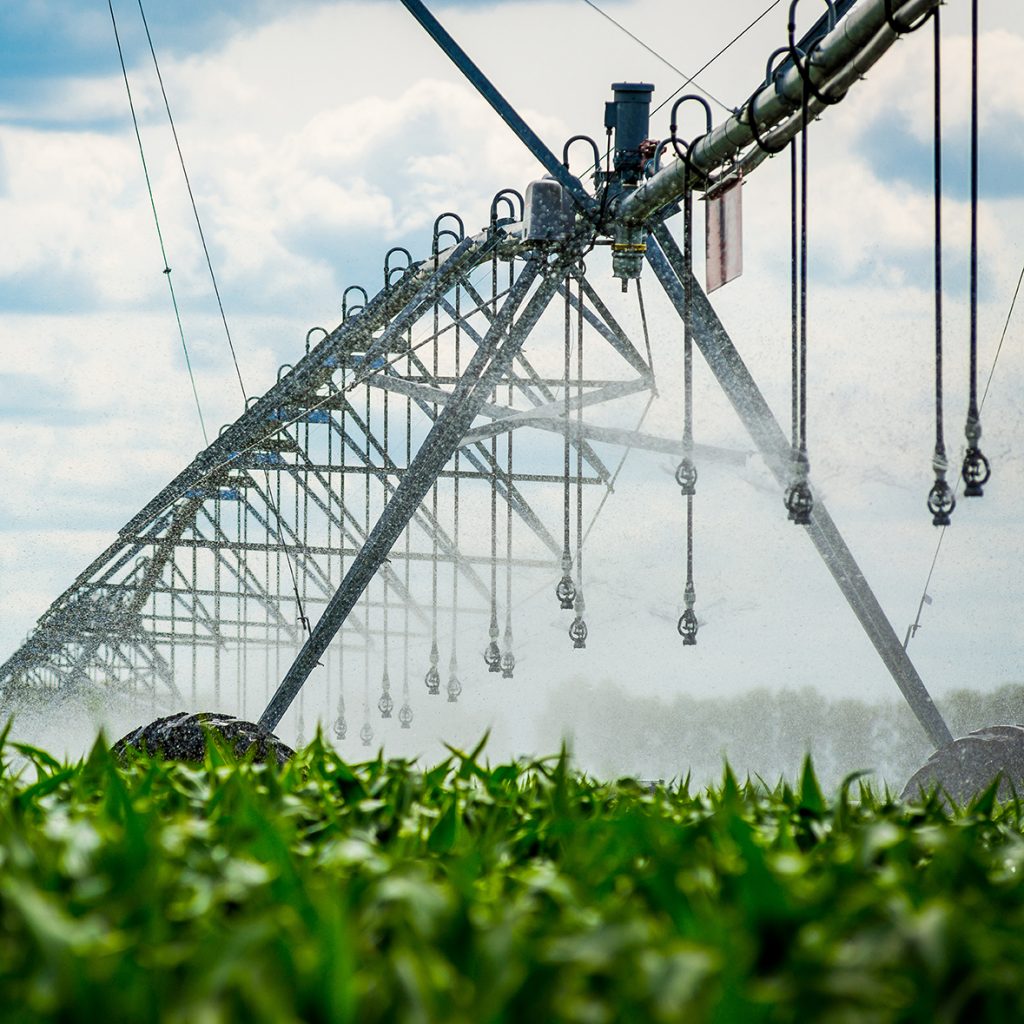
No one will argue that Indiana weather can be unpredictable. A long-term drought could be overtaken by major flooding all in the course of days.
During the spring and summer, farmers are growing their crops and rainfall is needed to sustain proper crop growth and development. Because Indiana has different types of soil, irrigation equipment becomes a necessity for many.
Operating pumps and other equipment in a damp environment increases the chance of equipment failure. Because the farmers themselves may be rain-soaked and muddy, their vulnerability to electric shock is much greater.
As you’ve heard many times before, water and electricity don’t mix so informing farmers about irrigation equipment safety is imperative.
Though they do not mix, water and electricity can work together if you follow safe work practices:
- Proper equipment selection and installation methods– The system should be wired to the standards of the National Electrical Code: it must have disconnect switches; it must use equipment and enclosures suitable for conditions; it must protect wires from physical damage or use “jacketed” irrigation cable; and it must have circuit and equipment grounding.
- Routine maintenance checks– Proactively look for faulty equipment and proper wiring installation.
- Safe work practices– Turn off the power before working on an irrigation system. Be aware of overhead power lines when working with irrigation pipes, when standing on systems and when near spraying water on power lines. Avoid wearing loose clothing and tie back long hair when near rotating equipment.
Your main goal is to not allow yourself to become a path for electricity.
If you have more questions about preventing electrical hazards, contact your electric cooperative.




